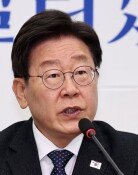Kor-US FTA helps Korea weather global economic crisis
Kor-US FTA helps Korea weather global economic crisis
Posted March. 11, 2013 03:34,
Friday will mark the first anniversary of the effectuation of the Korea-U.S. free trade agreement, which is credited with greatly helping to expand Korean exports to the American market and Seoul`s trade surplus despite the overall decline last year Korea`s overall overseas shipments.
The map of global trade is rapidly changing with Japan and the European Union aggressively seeking to forge free trade accords with the U.S. Experts say Korea should accelerate efforts to improve its global trade strategy to enjoy the advantages of having concluded a trade pact with the U.S. ahead of its rivals.
○ Lynchpin in Koreas overcoming of economic crisis
According to the Korea Customs Service and Korea International Trade Association on Sunday, between March last year, when the free trade pact took effect, and January this year, exports to the U.S. reached 53.8 billion U.S. dollars while imports from the U.S. amounted to 39.1 billion dollars. The import figure was down by 7.35 percent year-on-year but exports gained 2.67 percent. Over the period, trade surplus with the U.S. jumped by 44 percent from 10.2 billion dollars to 14.7 billion dollars.
Choi Won-mok, a law professor at Ewha Womans University, said The expansion of bilateral trade between both countries was smaller than expected, with the value of imports from the U.S. declining due to the global economic slump. But the effect of the free trade agreement has been clearly demonstrated, with the expansion of Koreas export to the U.S. that has helped prevent an economic slowdown in Korea
By sector, Korea saw strong growth in exports of automotive parts, machinery and rubber products. From March last year to January this year, automotive parts exports to the U.S. reached 5.22 billion dollars, up 12.6 percent year-on-year from 4.64 billion dollars. While other advanced countries such as Japan and the EU saw their exports to the U.S. decline, Korea saw automotive parts exports to the U.S. reach 496 million dollars in January this year, up 22.6 percent from the same month last year, as export growth gained pace.
Many analysts say Korea also performed well in the agricultural sector, which was expected to heavily suffer in. Imports of U.S. fruit including oranges and cherries surged, but the value of overall agricultural produce imports fell 17.4 percent from 4.6 billion dollars to 3.8 billion dollars. This is because Korean imports of U.S. corn declined sharply due to a severe drought that hit the U.S., while American beef imports also fell due to a drop in the prices of hanwoo, or Korean beef. In contrast, exports of Korean agricultural produce such as kimchi, seaweed and processed red ginseng, rose by 12.5 percent year-on-year to 352 million dollars.
○ Aggressive trade strategies of U.S., Japan
For Korea to maximize the effect from the upper hand it has secured in the U.S. market thanks to the free trade agreement, the key is how to cope with forthcoming challenges. With the global trade environment fast evolving, the flurry of problems to overcome includes the heavy concentration of benefits from the accord on conglomerates. The U.S. and other advanced economies including Japan and the EU are pursuing an aggressive trade policy, which poses a big burden on Korea. Japan is accelerating efforts to join the Trans-Pacific Partnership, while the U.S. is also speeding up the process to forge a free trade treaty with the EU. Against this backdrop, the effect of the Korea-U.S. FTA is feared to wane more rapidly than expected.
Jeong Jin-yeong, an international relations professor at Kyung Hee University, said, Though the U.S. is pushing to implement an aggressive strategy in the trade sector, the new Korean government is hardly in a position to respond due to the stalled reshuffle of the government, adding, The government trade agency should be normalized as soon as possible and prepare a mid- to long-term free trade agreement strategy, including for Korea-U.S. FTA.
weappon@donga.com







